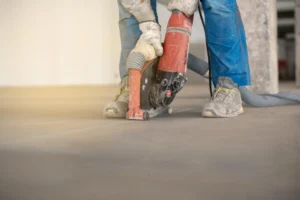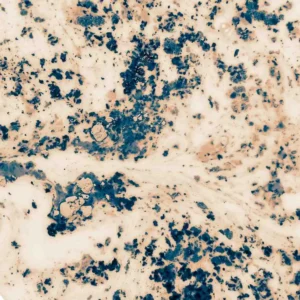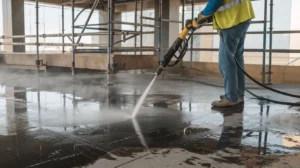Limestone countertops are a versatile and stylish option for modern homes. Known for their soft, natural tones and unique textures, they bring a touch of elegance to kitchens, bathrooms, and outdoor spaces. But are they the right choice for your home? This article explores the pros, cons, types, costs, maintenance tips, and more to help you decide if limestone countertops fit your lifestyle and design preferences.

What Is Limestone?
Limestone is a sedimentary rock formed over millions of years from marine organisms and mineral deposits. Its natural composition gives it a unique texture and appearance that varies from piece to piece. As a natural stone, limestone offers a timeless charm that complements both traditional and contemporary designs.
Pros of Limestone Countertops
Aesthetic Appeal
Limestone countertops are celebrated for their timeless aesthetic and natural charm. Their soft, earthy tones create a cozy and welcoming ambiance, effortlessly complementing diverse interior styles, from rustic farmhouse to sleek modern designs. For a bold statement, black limestone countertops offer an elegant, dramatic flair, adding depth and sophistication to any space.
Heat Resistance and Durability
Limestone is a heat-resistant material, ideal for kitchens where hot cookware is common. It can withstand high temperatures without damage. While not as hard as granite, limestone is durable for daily use if maintained properly. Its resilience makes it a practical choice for various applications. Proper sealing and care enhance its lifespan. Overall, limestone balances functionality and aesthetic appeal.
Environmentally Friendly Material
Limestone is an environmentally friendly material because it is a natural stone. Unlike synthetic alternatives, its extraction and processing have a lower environmental impact. Limestone requires minimal energy to quarry and shape, reducing carbon emissions. It is also abundant and recyclable, making it a sustainable choice. Using limestone supports eco-conscious building practices. Its natural origin ensures compatibility with green construction goals.
Adds Value to Your Home
Limestone countertops add significant value to your home by enhancing both its aesthetics and functionality. Their natural beauty and durability create a timeless appeal that complements various interior styles. Potential buyers often favor homes with premium materials like limestone, increasing market desirability. Limestone’s unique texture and versatility make it a standout feature in kitchens or bathrooms. Its eco-friendly nature also appeals to sustainability-conscious buyers.
Cons of Limestone Countertops
Porosity and Susceptibility to Staining
Limestone is naturally porous, meaning it has tiny openings that can absorb liquids. If not sealed, spills like wine or oil can penetrate its surface and cause stains. This makes limestone susceptible to damage in high-use areas. Proper sealing creates a barrier, reducing its vulnerability to stains. Regular maintenance is essential to preserve its beauty. Without care, stains may become permanent, diminishing its appeal.
Sensitivity to Acids
Limestone countertops are highly sensitive to acids, such as vinegar, citrus, and certain cleaning agents. When exposed to these acidic substances, the surface can become etched. Etching occurs as the acid reacts with the calcium carbonate in the stone, creating dull spots. Over time, this damage can worsen, affecting the countertop’s appearance. It’s important to clean limestone with pH-balanced products to avoid these issues. Regular care and protection can help maintain the countertop’s finish.
Requires Regular Maintenance
Limestone requires regular maintenance to maintain its appearance. It needs frequent sealing to protect it from stains and damage. Regular cleaning is crucial to prevent dirt buildup. Without proper care, limestone can develop scratches and discoloration. Neglecting maintenance may cause the stone to degrade over time. Ensuring consistent upkeep will preserve its beauty and durability.
Not as Hard as Granite or Quartz
Limestone is softer than granite and quartz, which makes it more vulnerable to damage like scratches and chips. While it still boasts aesthetic appeal, its softness means it may not be ideal for high-traffic areas or homes with heavy use. This increased susceptibility to wear requires more careful maintenance. If durability is a key concern, granite or quartz might be better choices. Despite this, limestone can still be a stunning option for less busy spaces. Its natural beauty and unique texture can enhance the look of any room.
Types of Limestone Countertops
Honed Limestone
Honed limestone has a smooth, matte finish, giving it a rustic and refined appearance. Unlike polished stones, it doesn’t reflect light, offering a more subtle aesthetic. This finish makes it ideal for spaces aiming for a softer, natural look. It’s perfect for those who want a more muted, understated stone surface. Honed limestone is also slip-resistant, making it a good choice for floors. Its versatile style complements various interior designs, adding warmth and character.
Polished Limestone
Polished limestone offers a sleek, glossy finish that enhances its natural beauty. The process of polishing smooths the surface, creating a reflective shine. This treatment brings out the stone’s unique textures and patterns. The result is a refined, elegant appearance ideal for upscale interiors. Polished limestone is often used for flooring, countertops, and walls. Its sophisticated look adds a touch of luxury to any space.
Tumbled Limestone
Tumbled limestone has a distinctive, textured finish that gives it an antique, weathered look. Its natural, earthy tones make it a popular choice for rustic or vintage-inspired kitchens. The stones are softly rounded, offering a timeless appeal. This style works particularly well in farmhouse or traditional settings. Tumbled limestone brings warmth and character to a space, enhancing its charm. It’s a great choice for homeowners seeking a durable, yet stylish material for their kitchen surfaces.
Where Limestone Countertops Work Best
Kitchen Countertops
Limestone countertops bring a natural, warm aesthetic to the kitchen with their unique, elegant appearance. However, they are more porous than other materials, making them prone to stains from oils, liquids, and acidic foods. The surface is also susceptible to scratching, especially from sharp objects. To maintain its beauty, limestone requires regular sealing to protect against moisture and dirt. Additionally, cleaning should be done with non-abrasive products to avoid damage. Overall, while it offers a luxurious look, limestone demands extra care and maintenance to ensure longevity.
Bathroom Vanities
Limestone is a great material for bathroom vanities due to its soft, natural appearance. Its subtle texture and warmth create a serene bathroom environment. Unlike some stones, limestone is less prone to damage from acidic substances commonly found in bathrooms. It’s ideal for areas where spills and humidity are more frequent. Its durability, combined with its aesthetic appeal, makes it a reliable choice for bathroom designs. Limestone adds a touch of elegance while maintaining practical functionality in the bathroom.
Outdoor Kitchens
Limestone is a versatile material for outdoor kitchens due to its natural aesthetic. However, it is more porous than other stones, making it susceptible to weathering. To ensure durability, it is essential to apply a high-quality sealant. The sealant protects limestone from moisture, stains, and UV damage. Regular reapplication of the sealant is necessary to maintain its performance. With proper care, limestone can be a long-lasting, attractive choice for outdoor kitchen surfaces.
Cost of Limestone Countertops
Average Price Range
The average cost of limestone countertops ranges from $50 to $200 per square foot, including material and installation. This makes them a moderately priced option compared to other countertop materials.
Factors Affecting the Cost
Quality of the stone: Premium-grade limestone costs more.
Thickness: Thicker slabs are pricier but offer better durability.
Surface finish: Polished and tumbled finishes can increase the price.
Comparison with Other Materials
While limestone is more affordable than marble, it’s generally costlier than laminate or concrete. Its unique aesthetic and natural stone appeal justify the investment.
Maintenance and Care Tips
Cleaning Methods: Use a soft cloth and a pH-neutral cleaner to clean limestone countertops. Avoid acidic or abrasive products that can damage the stone.
Importance of Sealing: Regular sealing is crucial to protect limestone from stains and moisture. It’s recommended to reseal the surface annually or as needed.
Preventing Stains and Scratches:
- Wipe up spills immediately to prevent stains.
- Use cutting boards to avoid scratches.
- Place trivets under hot pans to protect the surface.
Alternatives to Limestone Countertops
If limestone isn’t the right fit, consider these countertop materials:
Granite: Harder and more scratch-resistant.
Quartz: Low-maintenance and available in various designs.
Marble: Offers luxurious appeal but is also high-maintenance.
Is Limestone Good for Countertops?
Limestone countertops can be an excellent choice for homeowners who appreciate their natural beauty and are willing to invest in maintenance. Consider your lifestyle, budget, and design preferences before deciding.
Get High-Quality Limestone for Your Countertop with Stone Sealer & Restoration
For the best quality limestone countertops, trust Stone Sealer & Restoration. Our expert team offers premium stone materials and professional services to help you achieve the perfect countertop for your home. Contact us today for a free consultation!
Conclusion
Limestone countertops bring a unique blend of beauty, functionality, and natural appeal to modern homes. While they require regular care, their aesthetic and practical benefits make them a worthwhile investment. Whether you choose honed, polished, or tumbled limestone, these countertops can elevate your living spaces.
FAQs
Is limestone more expensive than granite?
Limestone is generally less expensive than high-end granite but costs more than entry-level granite.
Is a limestone countertop expensive?
The average cost of limestone countertops ranges from $50 to $200 per square foot, making them a mid-range option.
Why is limestone not used in kitchens?
Limestone is porous and sensitive to acids, which makes it less durable in high-traffic kitchen areas without proper maintenance.
Is limestone stronger than granite?
No, granite is harder and more scratch-resistant than limestone.
Is limestone outdated?
Not at all! Limestone countertops remain a popular choice due to their timeless appeal and versatility.





